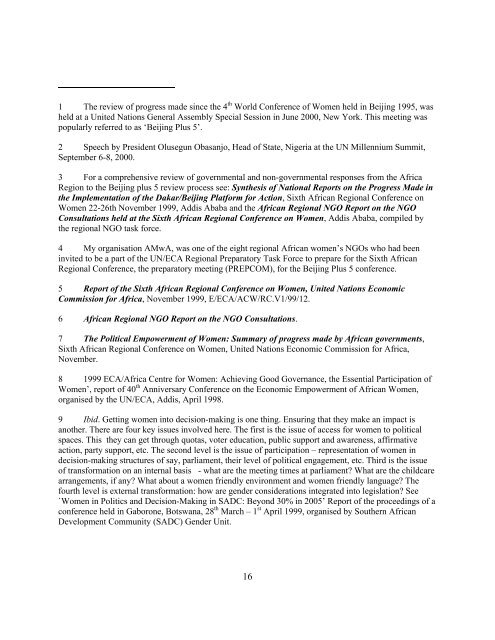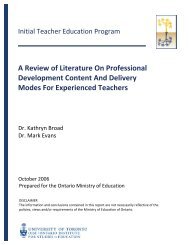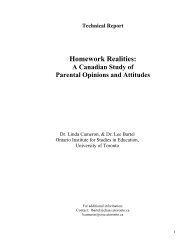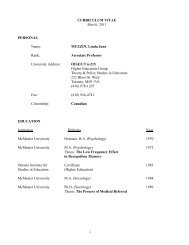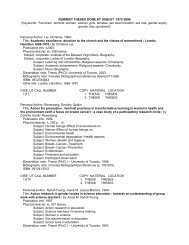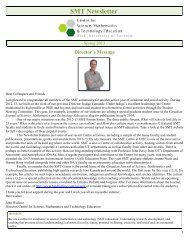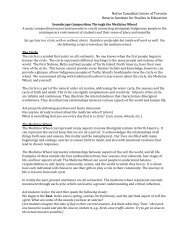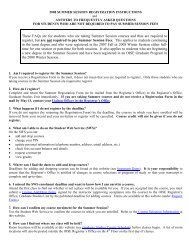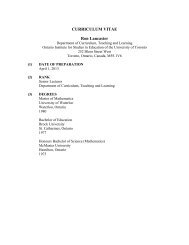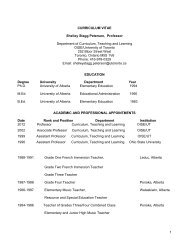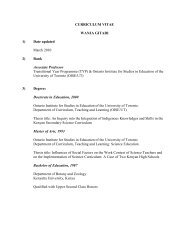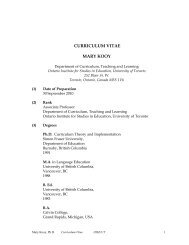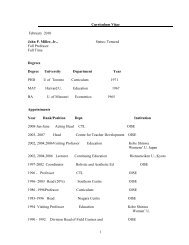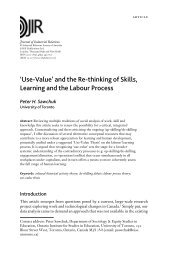CREATING AND SUSTAINING FEMINIST SPACE IN AFRICA ...
CREATING AND SUSTAINING FEMINIST SPACE IN AFRICA ...
CREATING AND SUSTAINING FEMINIST SPACE IN AFRICA ...
You also want an ePaper? Increase the reach of your titles
YUMPU automatically turns print PDFs into web optimized ePapers that Google loves.
1 The review of progress made since the 4 th World Conference of Women held in Beijing 1995, was<br />
held at a United Nations General Assembly Special Session in June 2000, New York. This meeting was<br />
popularly referred to as ‘Beijing Plus 5’.<br />
2 Speech by President Olusegun Obasanjo, Head of State, Nigeria at the UN Millennium Summit,<br />
September 6-8, 2000.<br />
3 For a comprehensive review of governmental and non-governmental responses from the Africa<br />
Region to the Beijing plus 5 review process see: Synthesis of National Reports on the Progress Made in<br />
the Implementation of the Dakar/Beijing Platform for Action, Sixth African Regional Conference on<br />
Women 22-26th November 1999, Addis Ababa and the African Regional NGO Report on the NGO<br />
Consultations held at the Sixth African Regional Conference on Women, Addis Ababa, compiled by<br />
the regional NGO task force.<br />
4 My organisation AMwA, was one of the eight regional African women’s NGOs who had been<br />
invited to be a part of the UN/ECA Regional Preparatory Task Force to prepare for the Sixth African<br />
Regional Conference, the preparatory meeting (PREPCOM), for the Beijing Plus 5 conference.<br />
5 Report of the Sixth African Regional Conference on Women, United Nations Economic<br />
Commission for Africa, November 1999, E/ECA/ACW/RC.V1/99/12.<br />
6 African Regional NGO Report on the NGO Consultations.<br />
7 The Political Empowerment of Women: Summary of progress made by African governments,<br />
Sixth African Regional Conference on Women, United Nations Economic Commission for Africa,<br />
November.<br />
8 1999 ECA/Africa Centre for Women: Achieving Good Governance, the Essential Participation of<br />
Women’, report of 40 th Anniversary Conference on the Economic Empowerment of African Women,<br />
organised by the UN/ECA, Addis, April 1998.<br />
9 Ibid. Getting women into decision-making is one thing. Ensuring that they make an impact is<br />
another. There are four key issues involved here. The first is the issue of access for women to political<br />
spaces. This they can get through quotas, voter education, public support and awareness, affirmative<br />
action, party support, etc. The second level is the issue of participation – representation of women in<br />
decision-making structures of say, parliament, their level of political engagement, etc. Third is the issue<br />
of transformation on an internal basis - what are the meeting times at parliament What are the childcare<br />
arrangements, if any What about a women friendly environment and women friendly language The<br />
fourth level is external transformation: how are gender considerations integrated into legislation See<br />
`Women in Politics and Decision-Making in SADC: Beyond 30% in 2005’ Report of the proceedings of a<br />
conference held in Gaborone, Botswana, 28 th March – 1 st April 1999, organised by Southern African<br />
Development Community (SADC) Gender Unit.<br />
16


